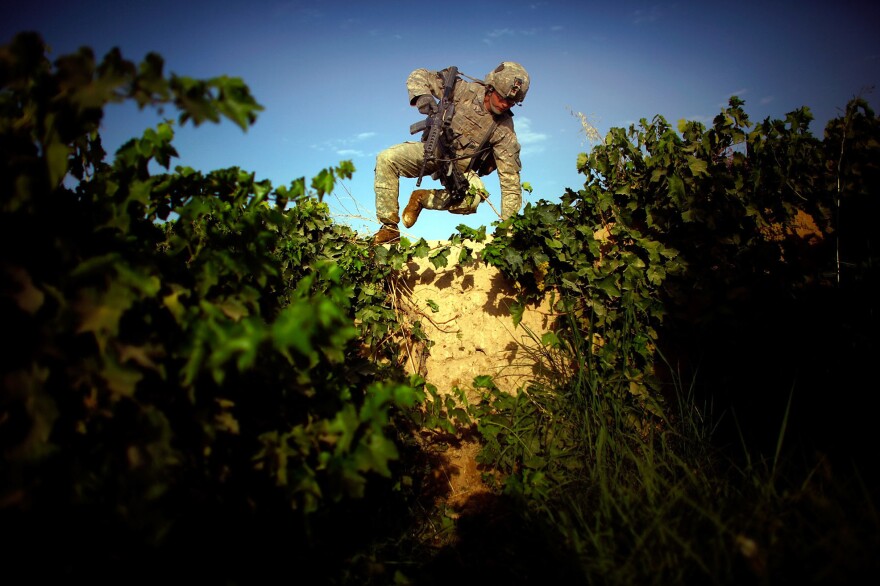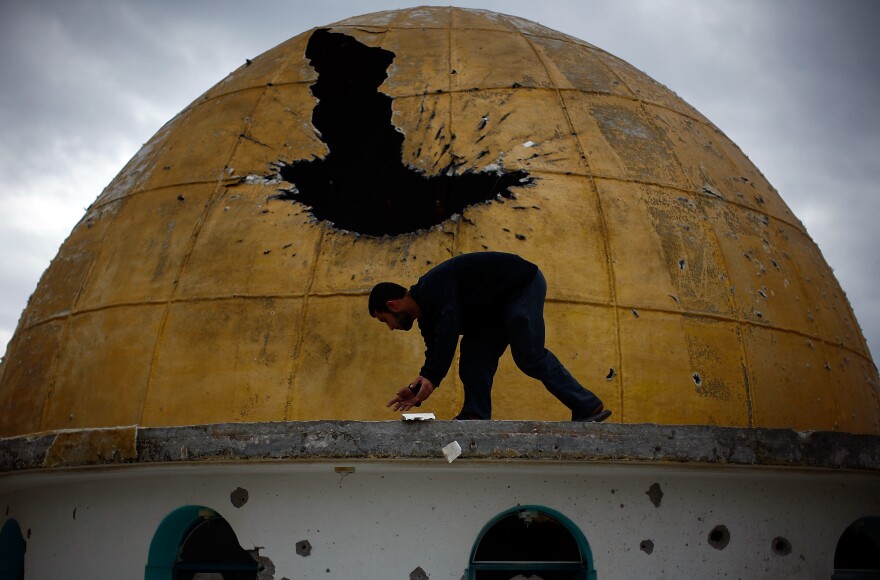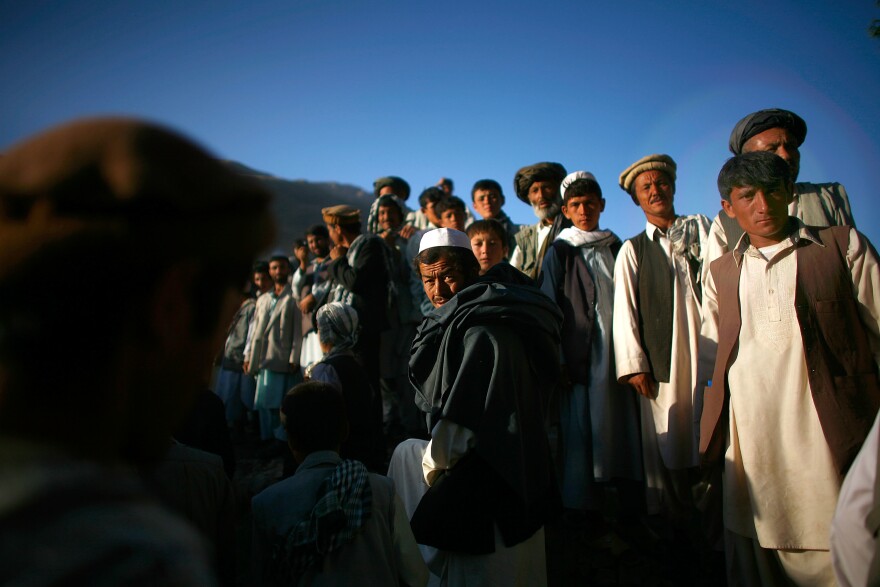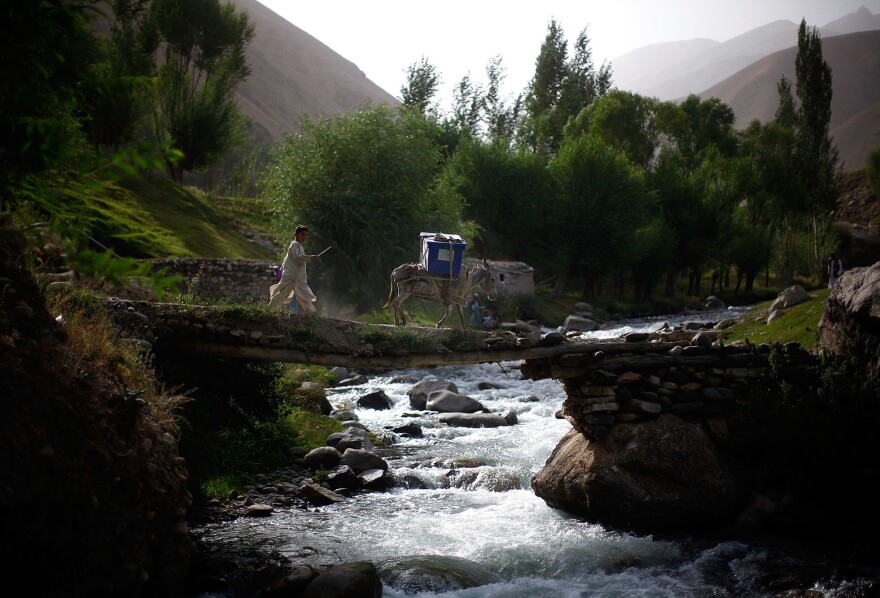Three years ago this week, NPR journalists David Gilkey and Zabihullah Tamanna were killed while on assignment in Afghanistan. They were traveling with the Afghan National Army when their convoy was ambushed.
John Poole, NPR's senior visuals editor, remembers his friend and colleague with words — and some of the striking photos David took during a remarkable career.
Editor's note: Some of the images are graphic.
Back in 2007, I helped recruit and hire David to NPR. After a decade at The Washington Post, I had only recently started a new job as NPR's first video producer. David was to become the second.
The job fell to me to call his references, and talking to his Detroit Free Press boss Nancy Andrews gave me my first hint as to what David was all about: "You better not hire him just so you can send him out to get local color in the suburbs." I promised her, just as I had been promised, that NPR was committed to sending both of us out to cover important national and international stories, wherever they led.




David's other reference, his colleague and friend Chip Somodevilla, put it even more bluntly: "I'm not going to lie — he does like the bam-bam."
As someone who does not particularly like the bam-bam, I wasn't quite sure how David would fit into his new office environment, especially as the new office had never had a proper photography or video department.



As a producer used to working in and out of the office with various fluctuating teams, I fell into a sort of translator's role. I helped David navigate the office, and when our nascent video department was transformed virtually overnight into a photography department, he in turn helped me navigate my new assignment: still photography.
Our minds worked so differently in many ways — but in others, we were totally in sync. David was terrified of writing but actively sought out assignments in war zones. He spoke through his pictures. And I learned early that in this way he was an extraordinarily eloquent speaker.
He thought deeply about the subjects and people he photographed and expressed himself through the time and care that he spent making images of them. He could intuit and express a mood just like breathing. He could find the beauty in the most mundane situations and later, I learned, even in some of the most horrible situations.




He was an artist, and he was also a soldier. Or maybe it was the other way around. Either way, he produced some of the most remarkable images of war and crisis that have ever been made. He could paint with his camera like an old master, even in the middle of hot fire. It is a miracle that he could do what he did.
I still wonder about where this ability came from. And I wonder if it had something to do with the personal history David and I shared. We were both adoptees.
Never quite belonging, on the outside looking in, aware that we were different, but in a way most people couldn't recognize. That feeling of otherness runs deep. I think it allowed David to see the world with a curiosity and longing that gave power and drive to his work.




But it also took a toll. It came at the cost of comfort and safety and emotional balance and connection. Though David was deeply sensitive, he did his best to hide it. He cursed; he complained; he loved gallows humor. And when the worst happened, that was exactly what he expected.
People thought David was the toughest guy in the building, and in many ways he was. But people who knew him best knew that underneath that shell was a soul who could be easily hurt — who felt much more than he ever acknowledged.
You can see it in his pictures. In the beauty that infuses every one of them. Amid the death and destruction that he witnessed over and over and over again, he found the fragile beauty in all of it.




I don't know how he did it for as long as he did. For holding these contradictions together for so long and as well as he did, he paid the ultimate price. For seeing the truth and the beauty in the things that most people turn away from, he played the role of witness for us all. In his pictures, we see through his eyes and his soul, and we hope — and maybe believe — that the beauty and compassion will win.
Copyright 2020 NPR. To see more, visit https://www.npr.org.


